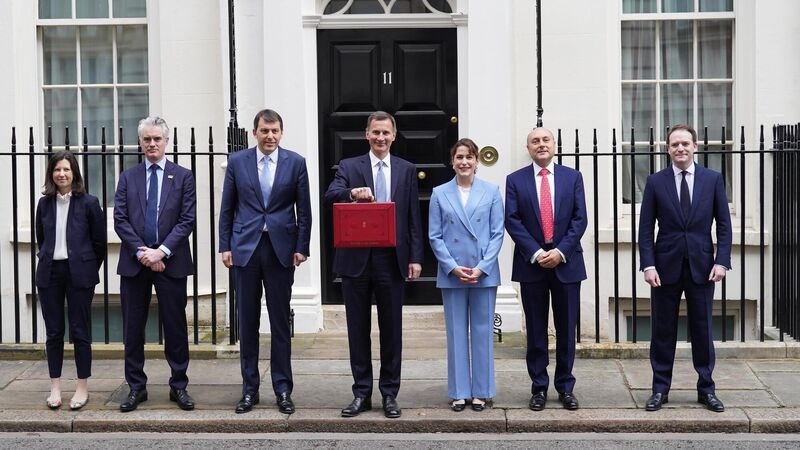UK budget loosens immigration to step up competition for construction workers

British Chancellor Jeremy Hunt outside 11 Downing Street in London before delivering the UK budget. He loosened fiscal policy over each of the next five years of the budget, easing the major belt-tightening in the later years he was forced to announce last year.
The British government said it will loosen immigration rules in a bid to attract more foreign construction workers to the UK and address a labour shortage in the industry. The move may sharpen the huge competition for building workers across Europe, including workers needed in Ireland to build new homes.
Five construction occupations will be added to the UK’s “shortage occupation list” after ministers accepted recommendations from their Migration Advisory Committee, or MAC, which counsels the UK government on immigration, budget documents showed. The professions include bricklayers, carpenters, plasterers and roofers.











